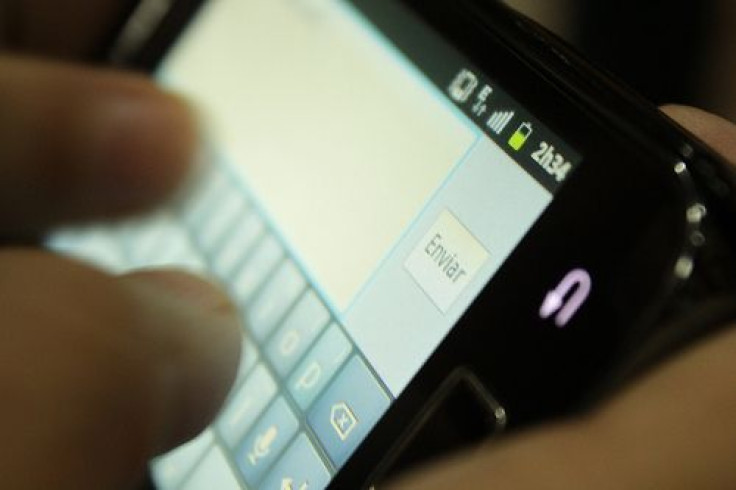Texting Service Could Improve Your Health: Pilot Program Reduced Diabetes Risk In Participants Through Better Awareness

A new health information service, txt4health, which texts diabetics with diet reminders, changed bad habits linked to disease for many participants. The messenger service highlights the important role that modern communication and social media could play in improving public wellness.
"We found that this method of health intervention had potential to significantly influence people's health habits and have great reach, said lead author Dr. Lorraine Buis, a family medicine specialist at the University of Michigan, who piloted txt4health last year in Detroit and Cincinnati.
With one in three Americans predicted to develop diabetes by 2050, doctors and scientists are searching for new ways to reverse the course of current trends. Though altering one's lifestyle and diet choices is no cure, both can allay the progression of the disease.
In cases of prediabetes, where people are showing preliminary signs, lifestyles changes can stop the march toward full-blown diabetes. Health agencies suspect that 79 million in the U.S. have prediabetes, making this group a major priority for intervention strategies.
Only 40 percent of the initial 1,800 participants completed the 14-week program, where they each received personalized health tips via text on a regular basis.
Yet the majority who did finish reported that the system had altered their diets. Three of four said they were more likely to replace sugary drinks with water, eat fresh fruit for dessert, and replace chips and French fries with salad when at a restaurant. Most avoided fried foods in general while using txt4health and bought healthier groceries.
The tool made it easier for subjects to track their weight and physical activity, with 88 percent saying that they enjoyed the program.
“It's clear that a text message program may not be appropriate for everyone; however, for a large subset of people, this may be a feasible, acceptable, and useful strategy to motivate positive behavior changes," Buis said.
The next step for Buis and her colleagues is finding ways to keep more people interested in txt4health after they sign up.
"Text message programs may be a useful tool when used as a component in a broad-based public health campaign," Buis says. "However, sole reliance on this strategy may be cautioned when targeting a general population because the level of individual engagement widely varies. We need to further explore ways to improve retention rates among participants."
The findings were reported in two studies published today in the Journal of Medical Internet Research.
Sources: Buis LR, Hirzel L, Turske SA, Des Jardins TR, Yarandi H, Bondurant P. Use of a Text Message Program to Raise Type 2 Diabetes Risk Awareness and Promote Health Behavior Change (Part I): Assessment of Participant Reach and Adoption. Journal of Medical Internet Research. 2013.
Buis LR, Hirzel L, Turske SA, Des Jardins TR, Yarandi H, Bondurant P. Use of a Text Message Program to Raise Type 2 Diabetes Risk Awareness and Promote Health Behavior Change (Part II): Assessment of Participants' Perceptions on Efficacy. Journal of Medical Internet Research. 2013.



























